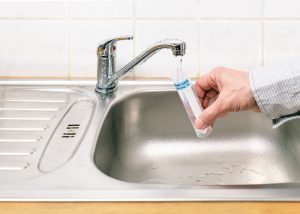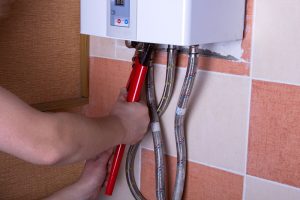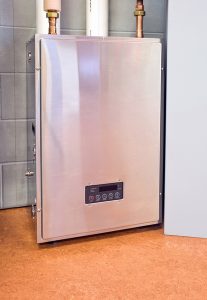 On our blog, we’ve addressed the problem with hard water in your home and the many different troubles it can cause: high water pressure from a drop of the volume in pipes, damage to water heaters and other water-using appliance, ugly film left on surfaces, and trouble with developing soap lather.
On our blog, we’ve addressed the problem with hard water in your home and the many different troubles it can cause: high water pressure from a drop of the volume in pipes, damage to water heaters and other water-using appliance, ugly film left on surfaces, and trouble with developing soap lather.
Ken Neyer Plumbing, Inc. Blog: Archive for September, 2017
Hard Water vs. Your Laundry
Monday, September 25th, 2017Do Tankless Water Heaters Need to Be Sized?
Monday, September 18th, 2017 How do you determine how large a storage tank water heater you need for a home? The sizing job is something you’ll need to have an expert plumber handle, but the basics of sizing this type of water heater is something anybody can understand: the more hot water demand there is in the house (usually because of the number of people in the household), the larger the storage tank itself needs to be.
How do you determine how large a storage tank water heater you need for a home? The sizing job is something you’ll need to have an expert plumber handle, but the basics of sizing this type of water heater is something anybody can understand: the more hot water demand there is in the house (usually because of the number of people in the household), the larger the storage tank itself needs to be.
But what if you’re planning to install a tankless water heater for your house? As the name indicates, a tankless water heater doesn’t have a storage tank at all. Instead, it applies heat to water as it moves through the unit via a heat exchanger. The water is heated as it is needed (or “on-demand,” which is another name for this type of water heater). So, does this mean there isn’t any need to size a tankless water heater because one size fits all?
Some Considerations about Tankless Water Heaters
Monday, September 4th, 2017 The fall is the best time of the year to replace a water heater that’s showing signs it’s coming to the end of its service life. Fall is generally a slower time of year for plumbers and heating experts, making it easier to schedule the service, and you can spend some extra time making the choice.
The fall is the best time of the year to replace a water heater that’s showing signs it’s coming to the end of its service life. Fall is generally a slower time of year for plumbers and heating experts, making it easier to schedule the service, and you can spend some extra time making the choice.
“Wait, what choice?” you might ask. The choice of what type of water heater you want to have installed. There are more options today than the standard storage tank water heater, including the heat pump water heater and the increasingly popular tankless water heater. The tankless models are the subject of a lot of scrutiny because they offer many potential advantages, but they also make people a bit nervous because they’re unsure if a system that heats up water “on demand” (i.e. only when there’s a call for hot water at one of the taps or appliances) will end up meeting their needs.
